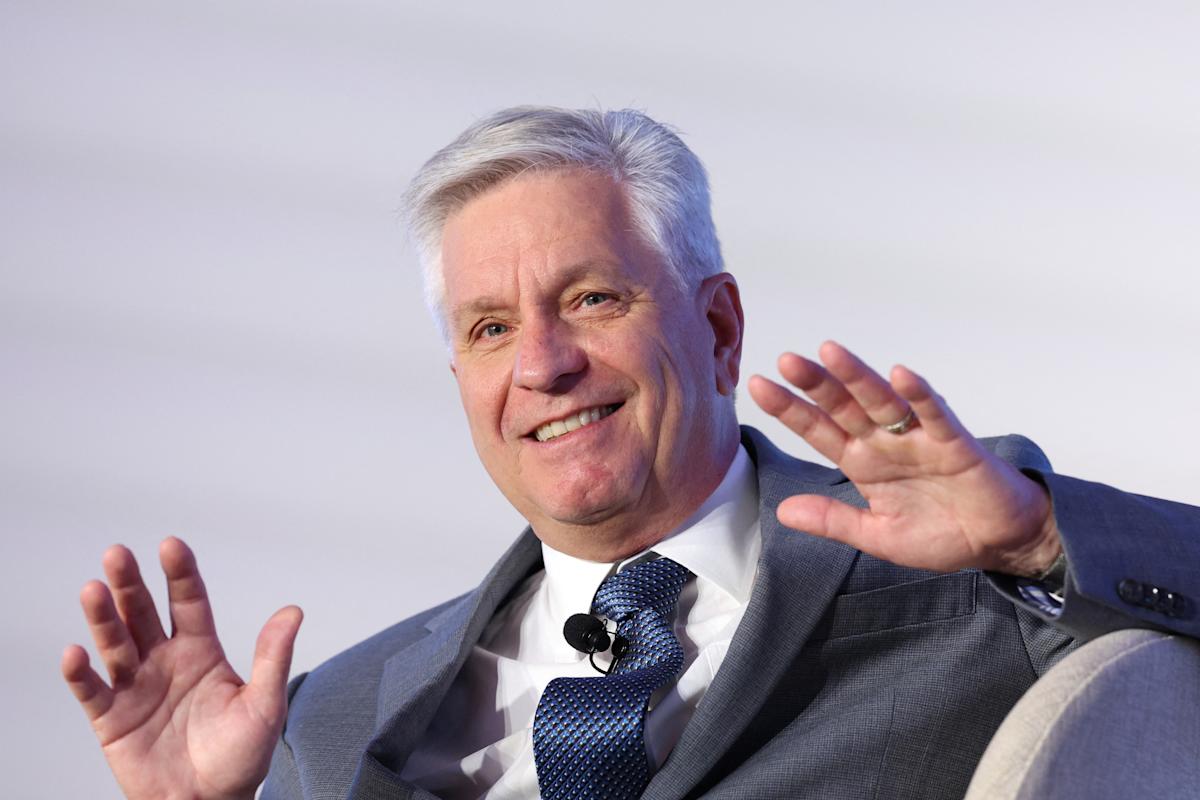Federal Reserve governor Chris Waller said Thursday he is in favor of trimming interest rates by another quarter percentage point at the end of this month, but after that he wants to move cautiously.
The new comments from a top candidate to replace Fed Chair Jerome Powell in 2026 suggest that Waller may be inclined to hold rates steady to wait and see how the economy and labor market play out.
Waller sees a conflict right now between data showing strong growth and a weakening job market.
“Something’s gotta give — either economic growth softens to match a soft labor market, or the labor market rebounds to match stronger economic growth,” Waller said in a speech in New York entitled “Cutting Rates in the Face of Conflicting Data.”
“Since we don’t know which way the data will break on this conflict, we need to move with care when adjusting the policy rate to ensure we don’t make a mistake that will be costly to correct,” Waller said.
Federal Reserve governor Christopher Waller. (Reuters/Brendan McDermid) · REUTERS / Reuters
Waller’s comments of caution come as one of his fellow policymakers appointed by President Trump, Fed governor Stephen Miran, called again Thursday for a 50 basis point rate cut at the next policy meeting on Oct. 27-28 and said that renewed trade tensions pose a risk to the economic outlook.
Miran, who isn’t worried about inflation from tariffs, wants to get to a neutral level on interest rates — a level designed to neither spur nor slow growth.
This latest sign of division within the Fed comes as Waller, who had been one of the Fed’s leading doves since the summer, pulls back a bit on his insistence on cutting rates going forward.
Read more: How the Fed rate decision affects your bank accounts, loans, credit cards, and investments
It coincides with his consideration as the next chair of the Fed. Waller is now on a shortlist of five people being considered by Treasury Secretary Scott Bessent, who is leading the search process and will make a final recommendation to Trump after Thanksgiving.
Markets are pricing in a rate cut at the next meeting and the December meeting as a done deal, but Waller’s comments also signal that a cut in December may not be a slam dunk, depending on which way the data falls in the coming weeks and months.
The government shutdown is complicating matters, as Fed officials have not received the September jobs report or retail sales. Inflation as measured by the Consumer Price Index is also delayed until next week.
Waller is relying on contacts to assess the job market and inflation. Employers have indicated to him that there was some further softening of the labor market last month, while retailers reported solid spending.
